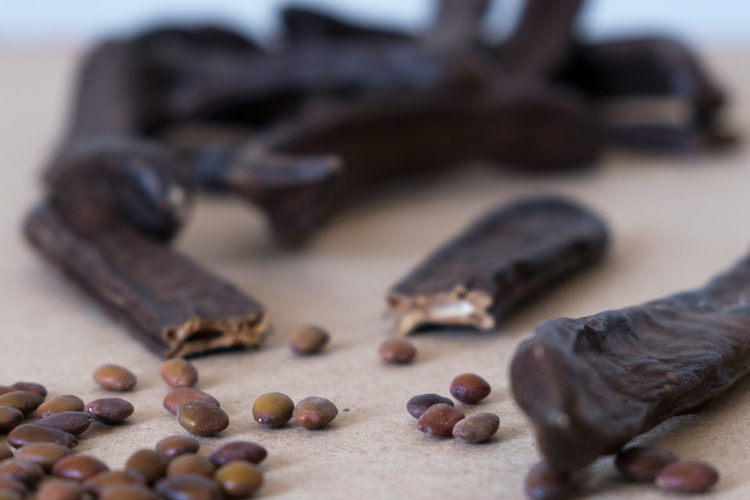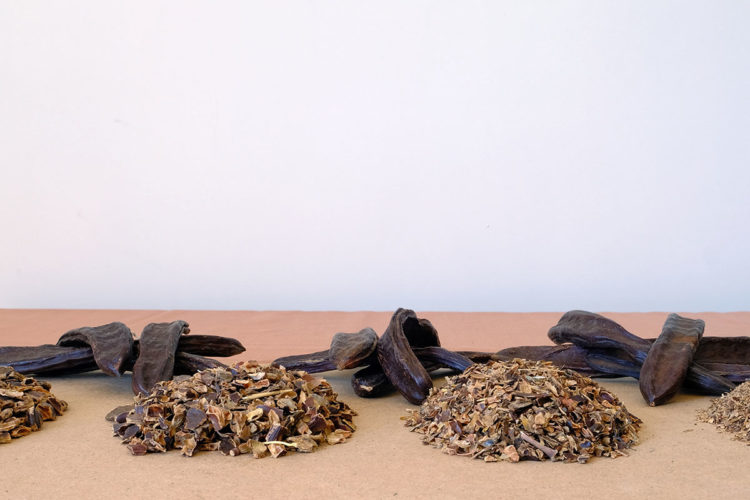Carob - (Kibbled, Flour, Seeds)
Carob Cultivation in Turkey: A Traditional Crop with Modern Appeal
Carob is a time-honored crop that has long played a central role in Mediterranean agricultural practices. Known for its rich flavor and unique texture, carob has been cultivated for centuries in regions that value both its cultural heritage and its economic potential. Among the countries where carob thrives, Turkey stands out as one of the leading producers, particularly in its southern and western coastal regions. The country’s favorable climate, extensive agricultural knowledge, and deep-rooted traditions make Turkey an important hub for carob farming and processing.
The geography of Turkey, especially the Mediterranean coastline stretching from Antalya to Mersin, provides ideal conditions for carob cultivation. Warm temperatures, mild winters, and minimal frost exposure allow carob trees to flourish in both wild and cultivated settings. These regions also benefit from sloped, well-drained terrain that suits the growth patterns of carob trees, which are known for their resilience and longevity. Farmers in Turkey often integrate carob trees into mixed orchards, combining them with other native species and ensuring the land is used efficiently and sustainably.
Carob farming in Turkey is often conducted by smallholder farmers who maintain traditional growing practices. These methods rely on minimal irrigation, making carob a low-maintenance and environmentally sustainable crop. Once established, carob trees require little intervention, and many trees continue to bear fruit for decades. Harvesting typically occurs in late summer or early autumn when the pods are fully ripened and turn dark brown. The collection process is usually manual, preserving the quality of the pods and reducing damage to the trees.
One of the distinguishing characteristics of Turkish carob is its taste profile, which varies slightly by region but is generally rich, earthy, and slightly sweet. The harvested pods are cleaned, dried, and either used whole or ground into powder. The resulting product finds its way into a wide variety of foods and artisanal preparations. In traditional Turkish cuisine, carob is used in syrups, baked goods, spreads, and beverages, particularly in coastal communities where the crop has been a part of the local diet for generations.
The increasing interest in plant-based and sustainable ingredients has led to renewed attention to carob as an alternative to more widely used sweeteners and flavoring agents. In response, Turkish farmers and processors are expanding their capabilities to meet growing demand both domestically and internationally. Carob-based products from Turkey are now reaching markets in Europe, the Middle East, and Asia, helping to establish Turkey as a key supplier of carob ingredients for the global food industry.
From an economic standpoint, carob cultivation offers several advantages for Turkish farmers. The crop is highly adaptable to dry climates and poor soils, making it suitable for marginal lands that are not ideal for other agricultural uses. Additionally, the long lifespan of carob trees means that investments in cultivation often result in stable, long-term yields. For rural communities, especially those in more mountainous or less industrialized areas, carob offers a reliable source of income that can be maintained across generations.
Efforts to improve carob production in Turkey have included support from agricultural cooperatives and academic institutions. These groups often work with farmers to improve harvesting techniques, reduce post-harvest losses, and explore new product innovations. While much of the cultivation remains traditional, these initiatives aim to increase productivity and market access while respecting the cultural significance of the crop.
In addition to its agricultural and culinary uses, carob holds symbolic importance in many Turkish regions. Festivals, local markets, and community events often feature carob products, celebrating the crop not just as a source of food, but as a part of the cultural landscape. These traditions help preserve knowledge about the plant and ensure that younger generations remain engaged with its cultivation and use.
As global interest in regional and sustainable crops continues to grow, Turkey’s role in the carob industry is likely to expand. The combination of traditional know-how, suitable climate, and increasing consumer demand makes carob a promising crop for both present and future agricultural development. Turkish carob, grown in harmony with the environment and local customs, reflects a broader movement toward food systems that value authenticity, sustainability, and connection to place.
Product Information
Crop: Wild grown on mountains
Parts used: Fruit or Seeds
Quality: Hand picked. Cleaned, 100% pure and natural.
Available as: Whole carob, Kibbled carob, Carob seeds and Carob powder (flour)
Industry used: Food, Dietary/Nutritional Supplement, Phytotherapy and Feed industries.
Packaging: Kraft paper bags, PP bags and PE bags in various sizes
Country of origin: TÜRKİYE



